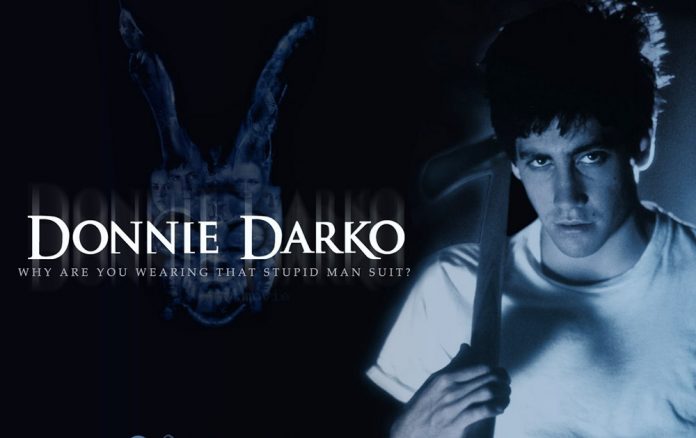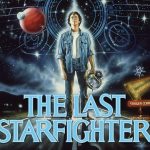Donnie Darko (2001)

Donnie Darko, released in 2001, is a thought-provoking psychological thriller that intricately weaves elements of science fiction with a deep exploration of adolescence and existentialism. Directed and written by Richard Kelly, the film quickly garnered a dedicated fan base, becoming a cult classic due to its complex narrative and rich thematic layers.
The story revolves around Donnie Darko, played by Jake Gyllenhaal, a troubled teenager living in suburban Virginia in the late 1980s. Donnie experiences vivid hallucinations and is plagued by the eerie presence of a mysterious figure dressed in a dark rabbit costume named Frank. This unsettling character appears to Donnie, guiding him through a series of bizarre events that blur the lines between reality and fantasy.
The film opens with Donnie waking up on a golf course after narrowly escaping a jet engine that mysteriously crashes into his bedroom. This incident sets off a chain of events that leads Donnie to question the nature of time, destiny, and the impact of his actions. As the narrative unfolds, viewers are introduced to a cast of compelling characters, including his supportive yet concerned family, his love interest Gretchen (played by Jena Malone), and various high school peers, each representing different facets of teenage life and societal pressures.

One of the central themes of Donnie Darko is the exploration of time travel and alternate realities. Donnie grapples with the concept of a tangent universe, a theory presented by his eccentric science teacher, Professor Kenneth (played by David E. Kelly). This idea propels Donnie into a journey of self-discovery as he attempts to manipulate time to prevent catastrophic events. The film intricately weaves philosophical concepts, drawing from the works of figures like Carl Jung and Arthur C. Clarke, challenging audiences to ponder the implications of fate versus free will.

The film’s haunting visual style and atmospheric score, composed by Michael Andrews, enhance its eerie tone. The use of 1980s music, including tracks from Tears for Fears and Gary Jules, adds nostalgia while grounding the story in its time period. These elements work harmoniously to create a surreal yet relatable environment that resonates with the struggles of adolescence.
As Donnie delves deeper into his psyche and the influence of Frank, he begins to confront his inner demons, addressing themes of mental illness, isolation, and the search for identity. His journey is both tragic and enlightening, leading to a climactic confrontation with his own understanding of existence. The film ultimately poses profound questions: What is the purpose of life? Can we change our fate, or are we merely products of a predetermined universe?

Despite its initial lukewarm reception, Donnie Darko found new life through home video releases and film festivals, capturing the imaginations of audiences worldwide. Its layered storytelling, combined with Gyllenhaal’s haunting performance, has solidified its place in cinematic history. The film challenges viewers to engage with its intricate narrative and encourages multiple interpretations, making it a staple in discussions of psychological and science fiction cinema.

In conclusion, Donnie Darko remains a significant film that explores complex themes of time travel, mental health, and the essence of being. Its unique blend of genres, memorable characters, and philosophical inquiries invite audiences to reflect on their own lives and the choices they make. As a testament to its lasting impact, Donnie Darko continues to resonate with new generations, inviting viewers to unravel its mysteries and delve into the enigmatic world Richard Kelly created.
Suggested videos for you:
Suggested videos for you:











